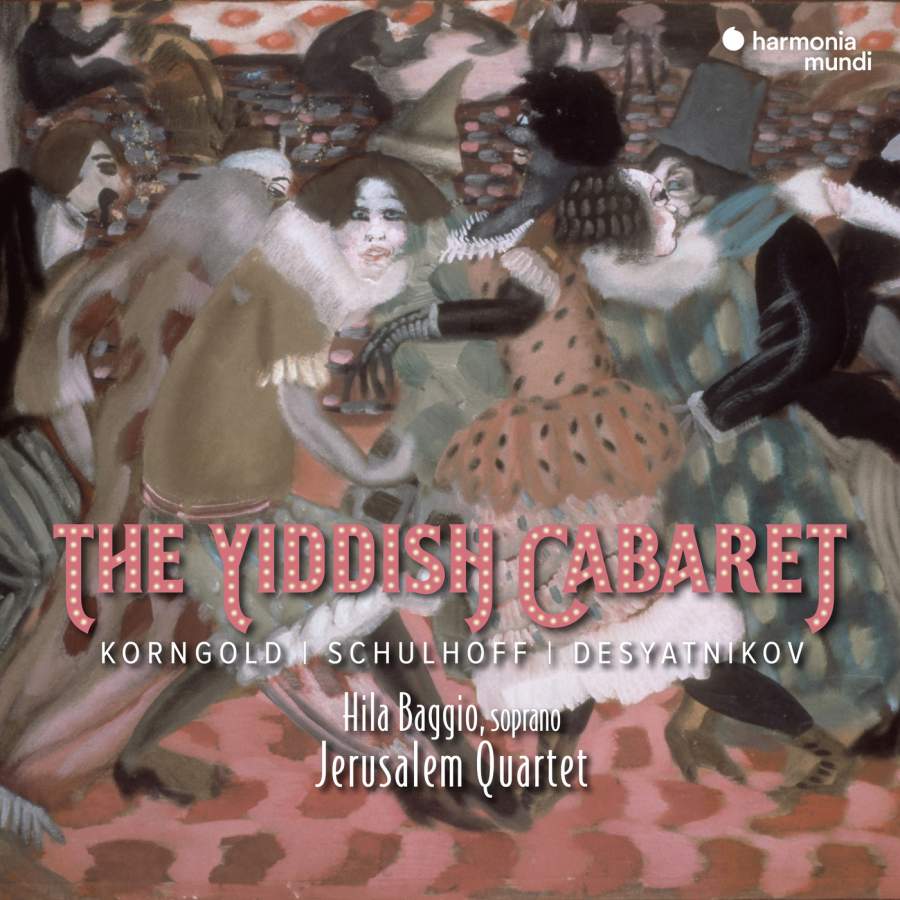Let’s be honest, straight off: if you’ve come to The Yiddish Cabaret expecting a Yiddish cabaret, prepare to be disappointed. Only Leonid Desyatnikov’s Five Songs for Voice and String Quartet can claim any direct association (and that at several steps removed) with the Weimar era being hymned by the disc’s title.
If Korngold’s Second String Quartet and Schulhoff’s Five Pieces for String Quartet can claim only glancing connections with Yiddish culture (more than can be said for their cabaret credentials), what can’t be faulted is the Jerusalem Quartet’s committed, communicative playing.
Composed in 2018 and making their first appearance on disc, Desyatnikov describes his Five Songs as “free transcriptions” of Yiddish lyrics from pre-war Warsaw and Łódz´. They represent, he says, “the eclectic culture of the assimilantes, the lumpenproletariat and the outsiders, the culture of cheap chic, and at the same time – in its best forms – a brazen, talented culture full of self-irony and latent despair”.
Shifting between playfulness, bittersweet poignancy and vinegary trenchancy, there’s a pungent pointedness to Desyatnikov’s string writing, laced and barbed with caustic, ersatz-Weimar asides. It’s also vividly evocative, with Israeli soprano Hila Baggio taking to their assorted tales of prostitution, criminality and grinding poverty with obvious relish. Whether biting into the vernacular texts or allowing them to soar, she’s well-supported by the Jerusalem Quartet’s nimble, idiomatically alert strings.
Read the article by Michael Quinn in Limelight.

